INTRODUCTIONS
Introduction to Marjon Mossammaparast’s That Sight
Photo by Gen Ackland. BUY YOUR COPY HERE Marjon Mossammaparast’s That Sight offers us a wide-ranging series of viewpoints, taking the reader through various locations and histories. It zooms out to cosmological heights, and even beyond to God (or the …
Introduction to Elena Gomez’s Body of Work
 There’s a difference between occupying a seemingly unceasing parade of subject positions through a kind of colonising, thieving, dissipatory borderlessness … and inhabiting them as a form of aesthetic and political revolt.
There’s a difference between occupying a seemingly unceasing parade of subject positions through a kind of colonising, thieving, dissipatory borderlessness … and inhabiting them as a form of aesthetic and political revolt.
Introduction to Helen Lambert’s Echoland
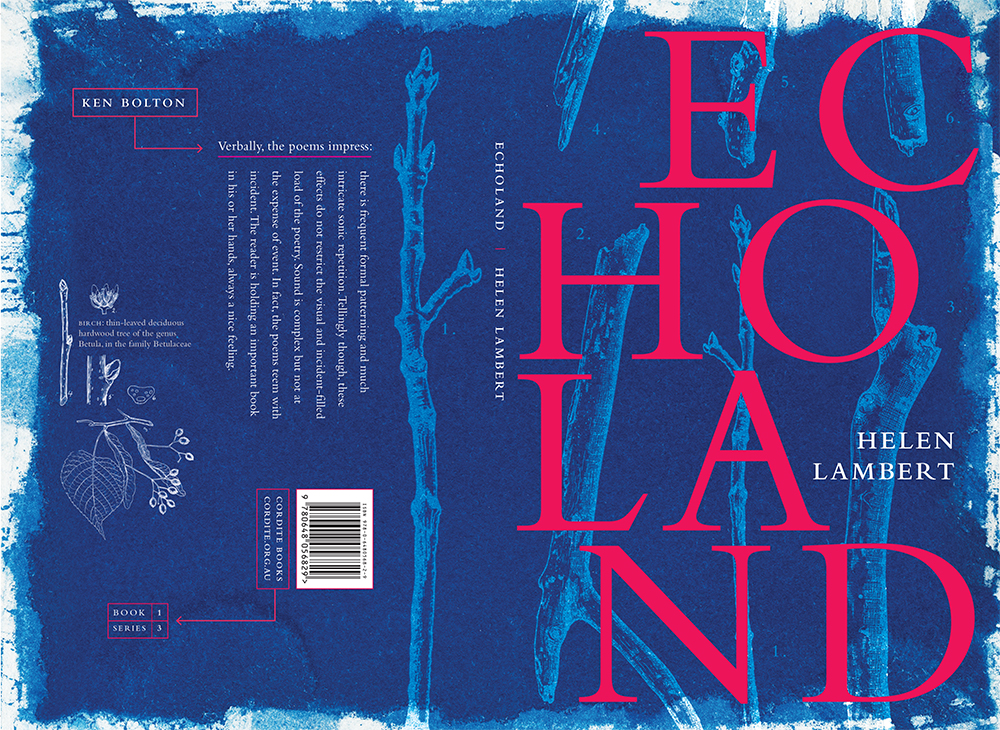 Helen Lambert’s work is as new to me as it will be to others – she has been operating away from Australian poetry for some time, with long periods in Ireland and, lately, Russia. One approaches a new poet warily. Yet the inventive and capable intelligence behind the poems here is immediately apparent. It is wonderful to be able to drop one’s guard, to forget it – and to enter a wonderful world.
Helen Lambert’s work is as new to me as it will be to others – she has been operating away from Australian poetry for some time, with long periods in Ireland and, lately, Russia. One approaches a new poet warily. Yet the inventive and capable intelligence behind the poems here is immediately apparent. It is wonderful to be able to drop one’s guard, to forget it – and to enter a wonderful world.
Introduction to Siobhan Hodge’s Justice for Romeo
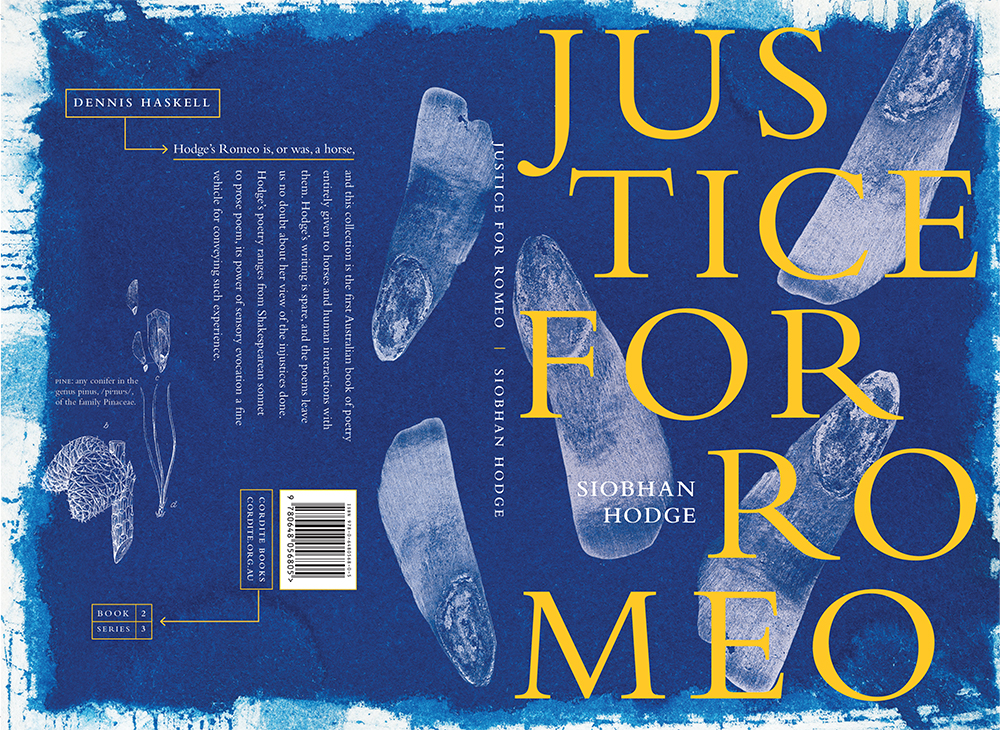 Justice for Romeo, as a title, will seem both accurate and misleading for most readers; this is a book decidedly concerned with justice, and Siobhan Hodge’s sense of ethical responsibility pervades the poems. Hodge’s book includes as epigraph the exchange between Romeo and a servant in Act I, Scene ii of the most famous love story of all time; the servant asks, ‘I pray, can you read any thing you see?’, to which Romeo replies, ‘Ay, if I know the letters and the language.’
Justice for Romeo, as a title, will seem both accurate and misleading for most readers; this is a book decidedly concerned with justice, and Siobhan Hodge’s sense of ethical responsibility pervades the poems. Hodge’s book includes as epigraph the exchange between Romeo and a servant in Act I, Scene ii of the most famous love story of all time; the servant asks, ‘I pray, can you read any thing you see?’, to which Romeo replies, ‘Ay, if I know the letters and the language.’
Introduction to Lindsay Tuggle’s Calenture
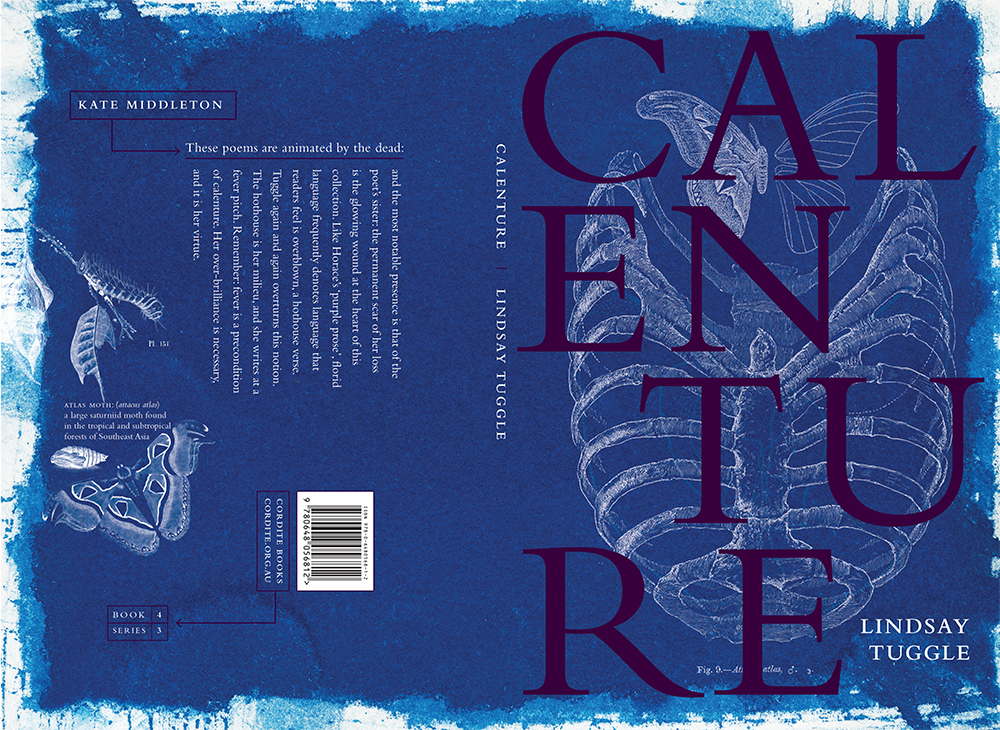 Lindsay Tuggle’s poetry is uncomfortable to read: the discomforts one feels in reading her work are the very thing that make it memorable. At once immensely personal, ornate, and unapologetically embedded in female experience, it is a style unconcerned with irony or terseness. It is a verse informed by the still-alive alternative histories of the American South and haunted by the Southern Gothic literature that these histories inform.
Lindsay Tuggle’s poetry is uncomfortable to read: the discomforts one feels in reading her work are the very thing that make it memorable. At once immensely personal, ornate, and unapologetically embedded in female experience, it is a style unconcerned with irony or terseness. It is a verse informed by the still-alive alternative histories of the American South and haunted by the Southern Gothic literature that these histories inform.
Introduction to Pascalle Burton’s About the Author Is Dead
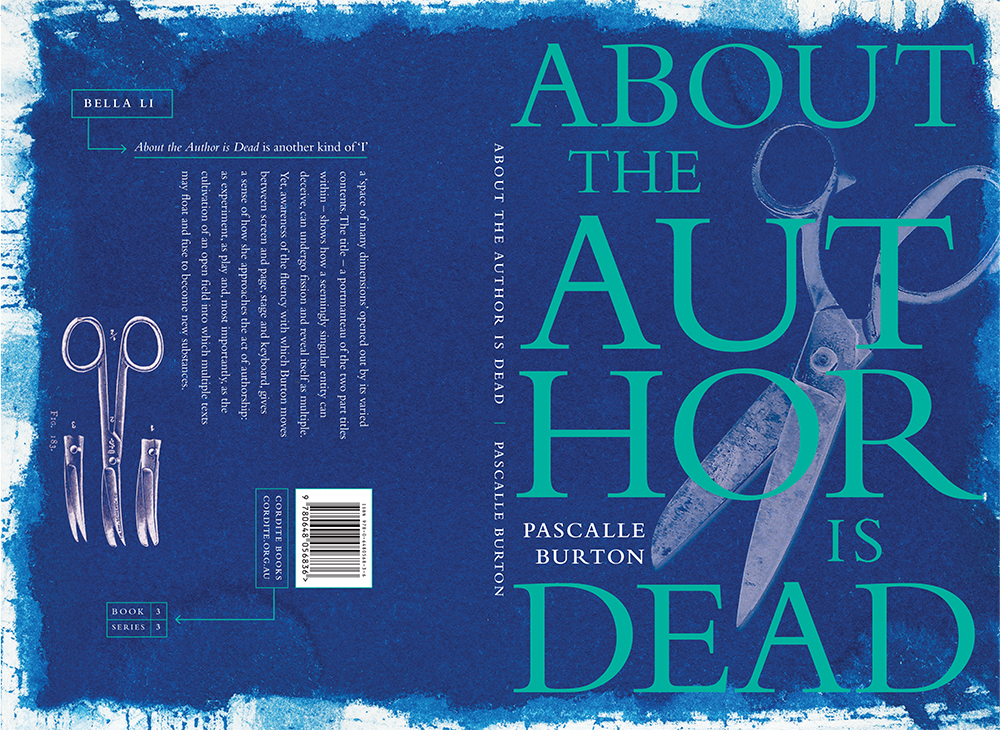 Pascalle Burton’s About the Author is Dead refers to, and opens with an epigraph from, Roland Barthes’s seminal essay, ‘The Death of the Author’. Inside the collection, we find not one author but many: David Byrne and Grace Jones, Miranda July and Jacques Derrida; authors who are filmmakers, authors who are poets, philosophers and musicians.
Pascalle Burton’s About the Author is Dead refers to, and opens with an epigraph from, Roland Barthes’s seminal essay, ‘The Death of the Author’. Inside the collection, we find not one author but many: David Byrne and Grace Jones, Miranda July and Jacques Derrida; authors who are filmmakers, authors who are poets, philosophers and musicians.
Introduction to Jeanine Leane’s Walk Back Over
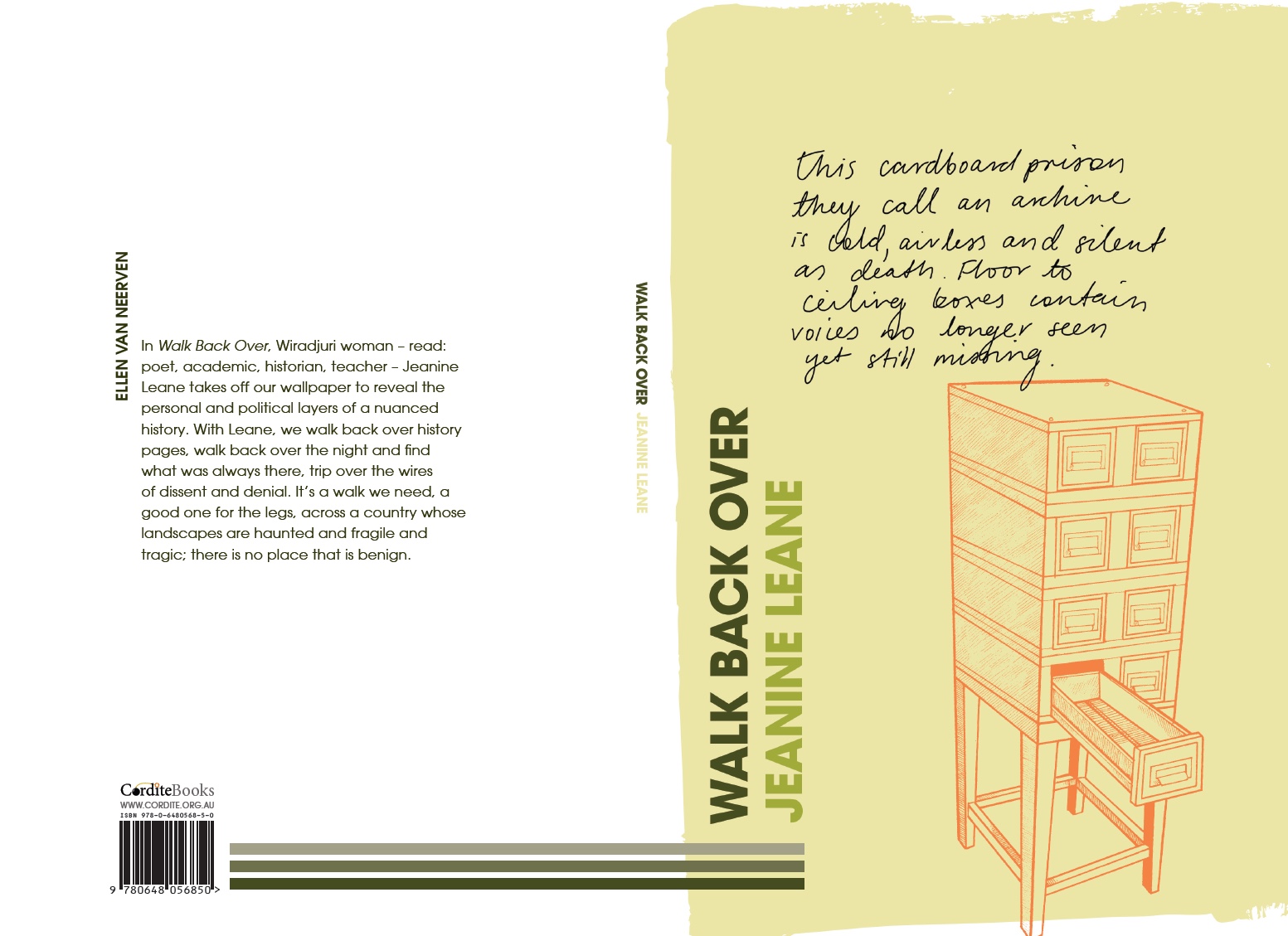 In Walk Back Over, Wiradjuri woman – read: poet, academic, historian, teacher – Jeanine Leane takes off our wallpaper to reveal the personal and political layers of a nuanced history.
In Walk Back Over, Wiradjuri woman – read: poet, academic, historian, teacher – Jeanine Leane takes off our wallpaper to reveal the personal and political layers of a nuanced history.
Introduction to Anne Elvey’s White on White
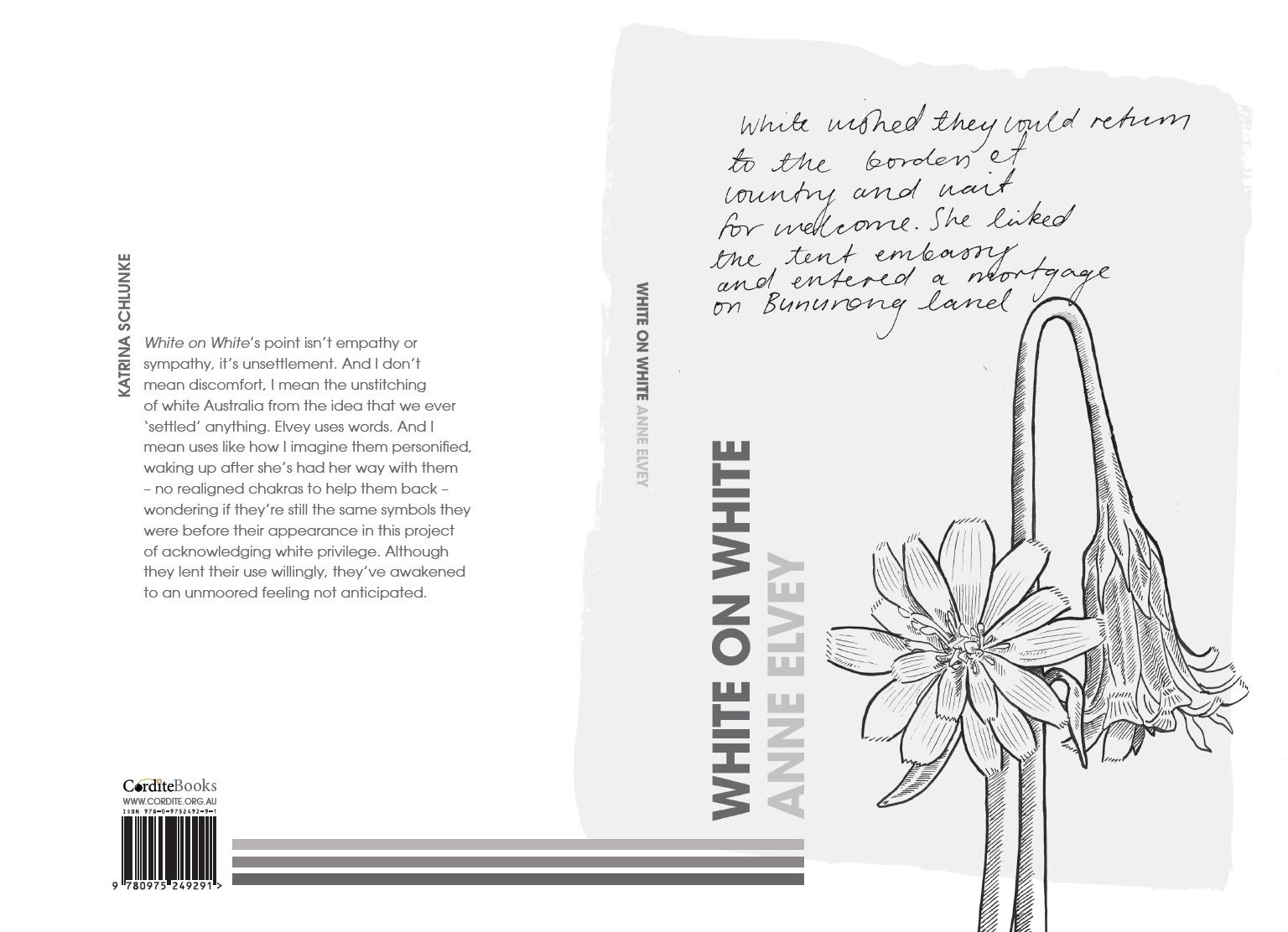 What is happening in these poems? Or do I mean what happens to us, the readers? But which ‘us’? And what reader? I am not really talking about feeling, although who couldn’t, wouldn’t, feel when ‘School Days’ – a poem that records every detail of white skin and soul, sun-warmed government-issue school milk and British ritual in one colonial Australian home – has another child, likely an Indigenous Australian child, stolen ‘while waiting for a train’.
What is happening in these poems? Or do I mean what happens to us, the readers? But which ‘us’? And what reader? I am not really talking about feeling, although who couldn’t, wouldn’t, feel when ‘School Days’ – a poem that records every detail of white skin and soul, sun-warmed government-issue school milk and British ritual in one colonial Australian home – has another child, likely an Indigenous Australian child, stolen ‘while waiting for a train’.
Introduction to Tanya Thaweeskulchai’s A Salivating Monstrous Plant
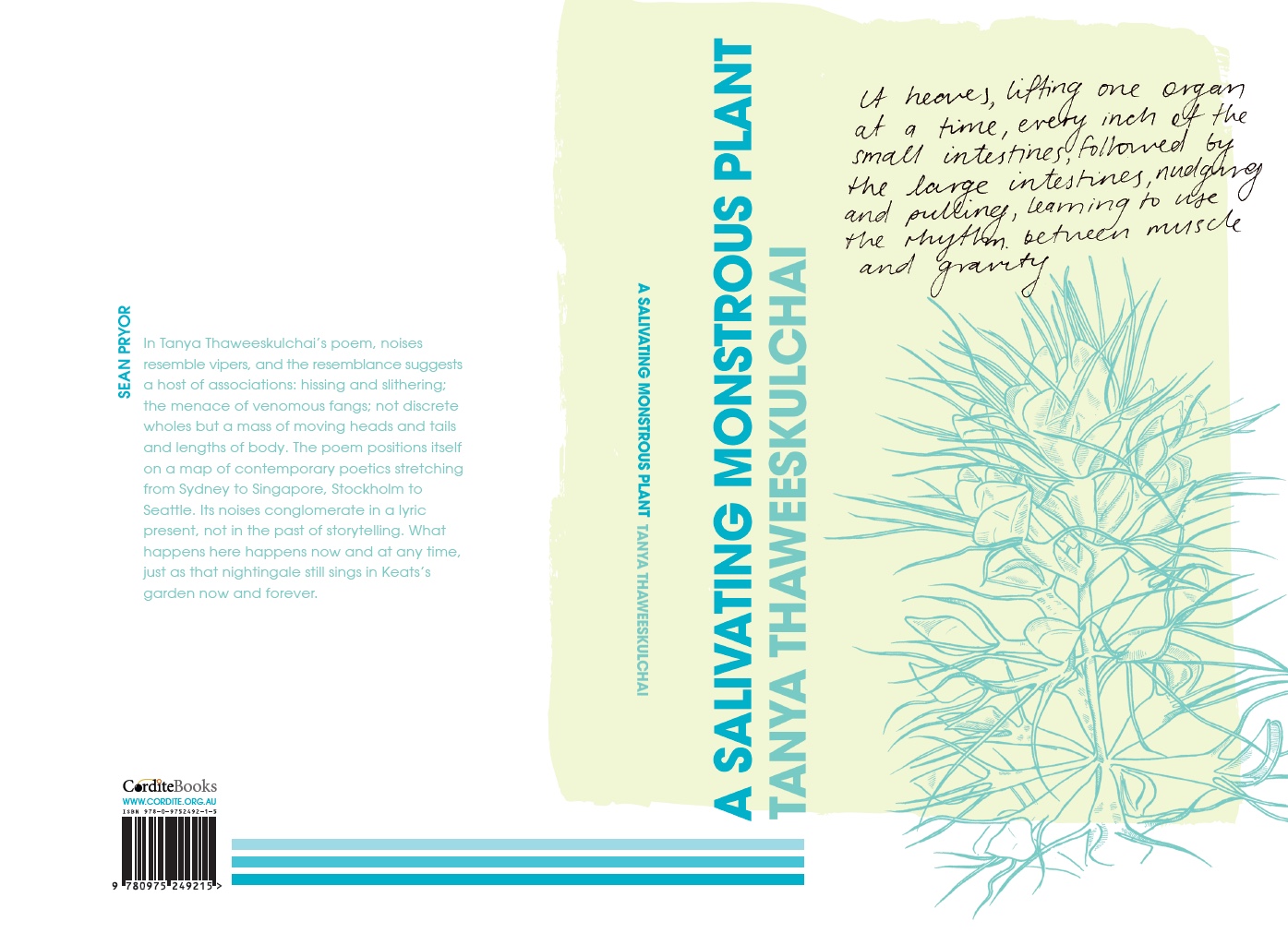 The greatest thing, writes Aristotle in the Poetics, is the command of metaphor, an eye for resemblances. The first overt metaphor in Tanya Thaweeskulchai’s A Salivating Monstrous Plant appears in its second sentence: ‘These noises conglomerate, building like a nest of waking vipers’.
The greatest thing, writes Aristotle in the Poetics, is the command of metaphor, an eye for resemblances. The first overt metaphor in Tanya Thaweeskulchai’s A Salivating Monstrous Plant appears in its second sentence: ‘These noises conglomerate, building like a nest of waking vipers’.
Introduction to Broede Carmody’s Flat Exit
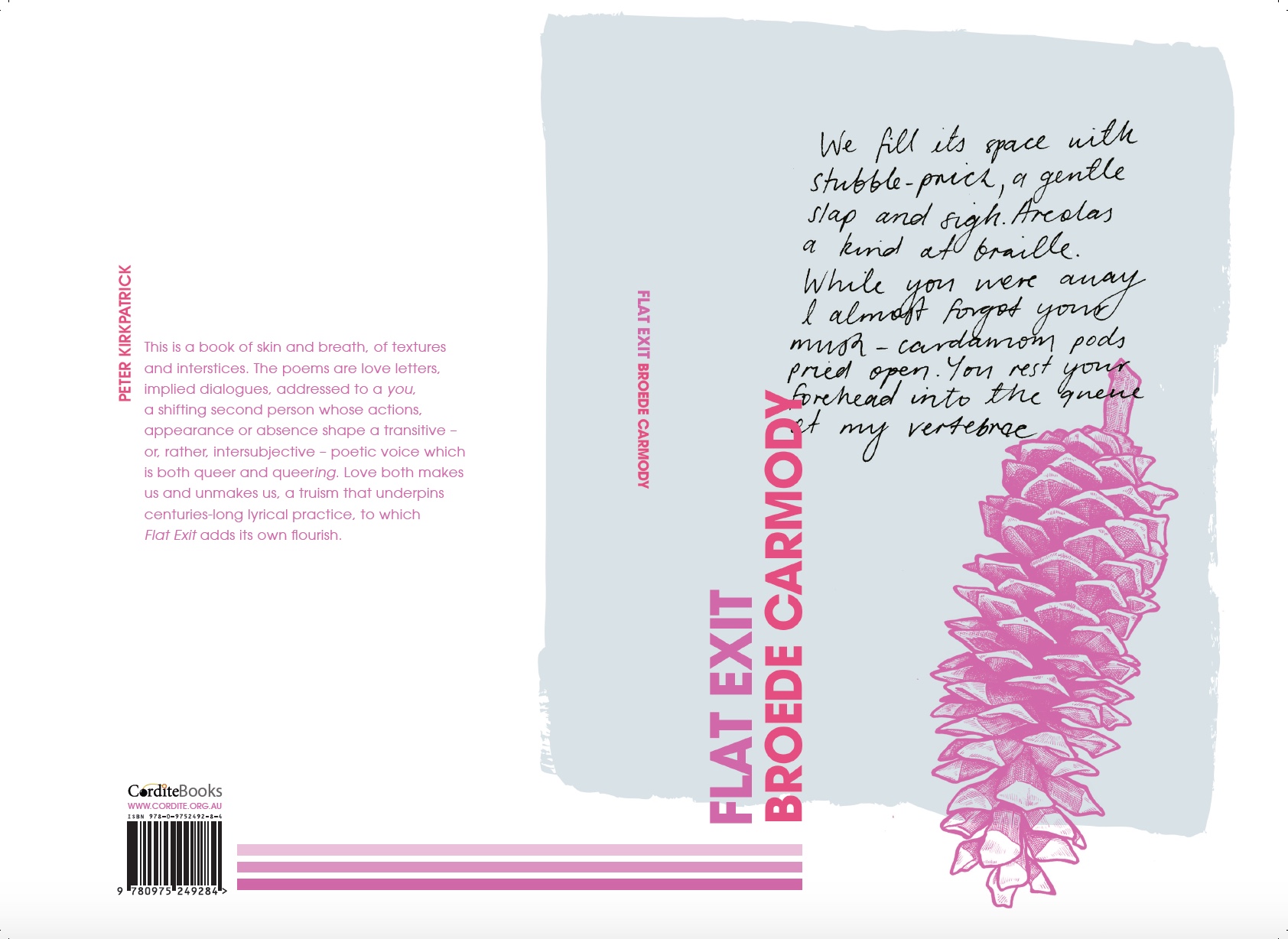 A first book of poems needs no introduction, being its own forerunner. As a consequence, this note merely states the obvious: that Broede Carmody is a young writer with a great lyrical talent.
A first book of poems needs no introduction, being its own forerunner. As a consequence, this note merely states the obvious: that Broede Carmody is a young writer with a great lyrical talent.
Introduction to Matthew Hall’s False Fruits
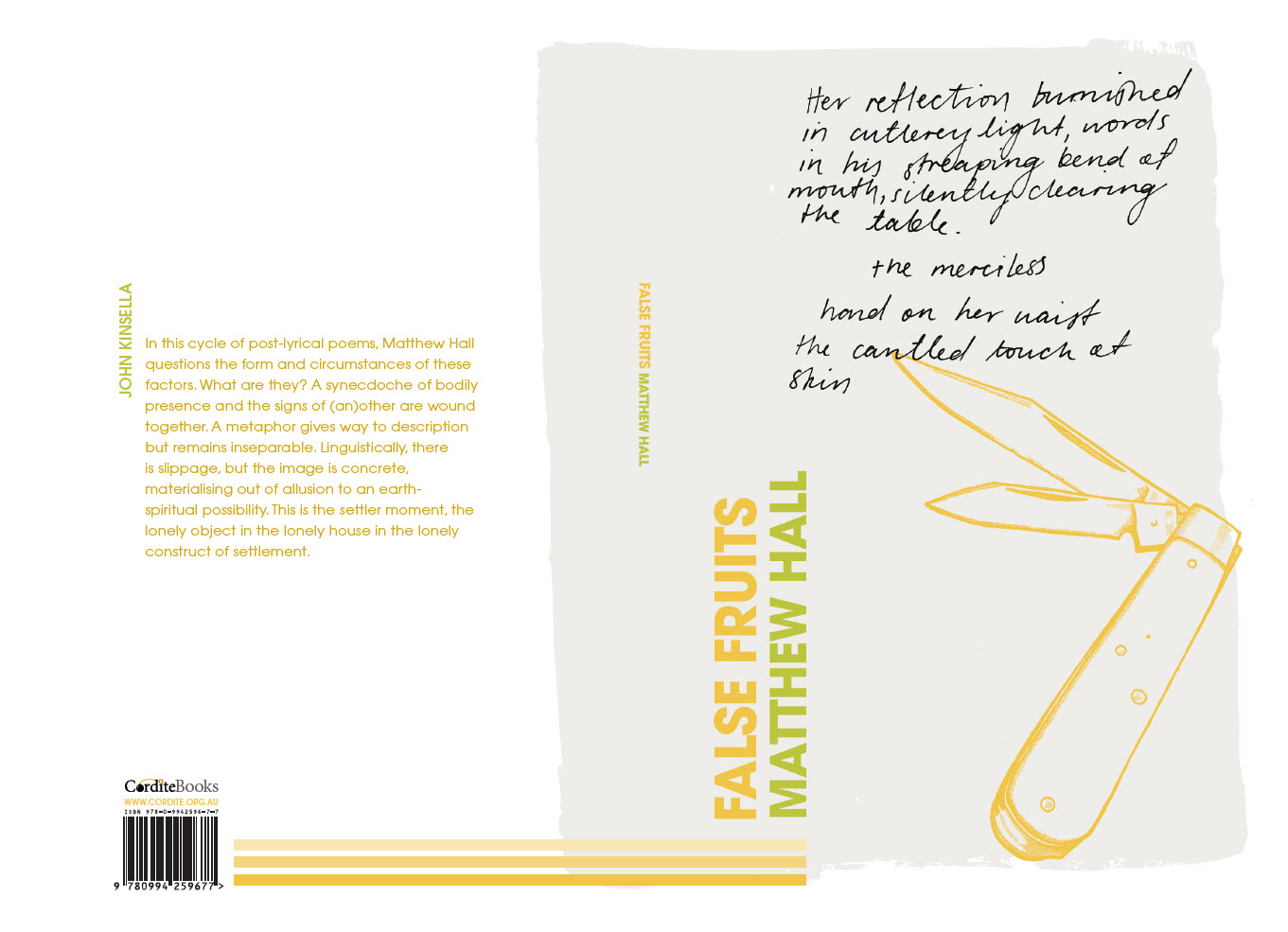 Fruit is the apogee of the pastoral. It’s what the work, the waiting, the ritual and the thanks are for. But the making of fruit is costly and even the ‘natural’ cycle of things will be managed so some factors are privileged over others. In this cycle of post-lyrical poems, Hall questions the form and circumstances of these factors. What are they?
Fruit is the apogee of the pastoral. It’s what the work, the waiting, the ritual and the thanks are for. But the making of fruit is costly and even the ‘natural’ cycle of things will be managed so some factors are privileged over others. In this cycle of post-lyrical poems, Hall questions the form and circumstances of these factors. What are they?
Introduction to Mez Breeze’s Attn: Solitude
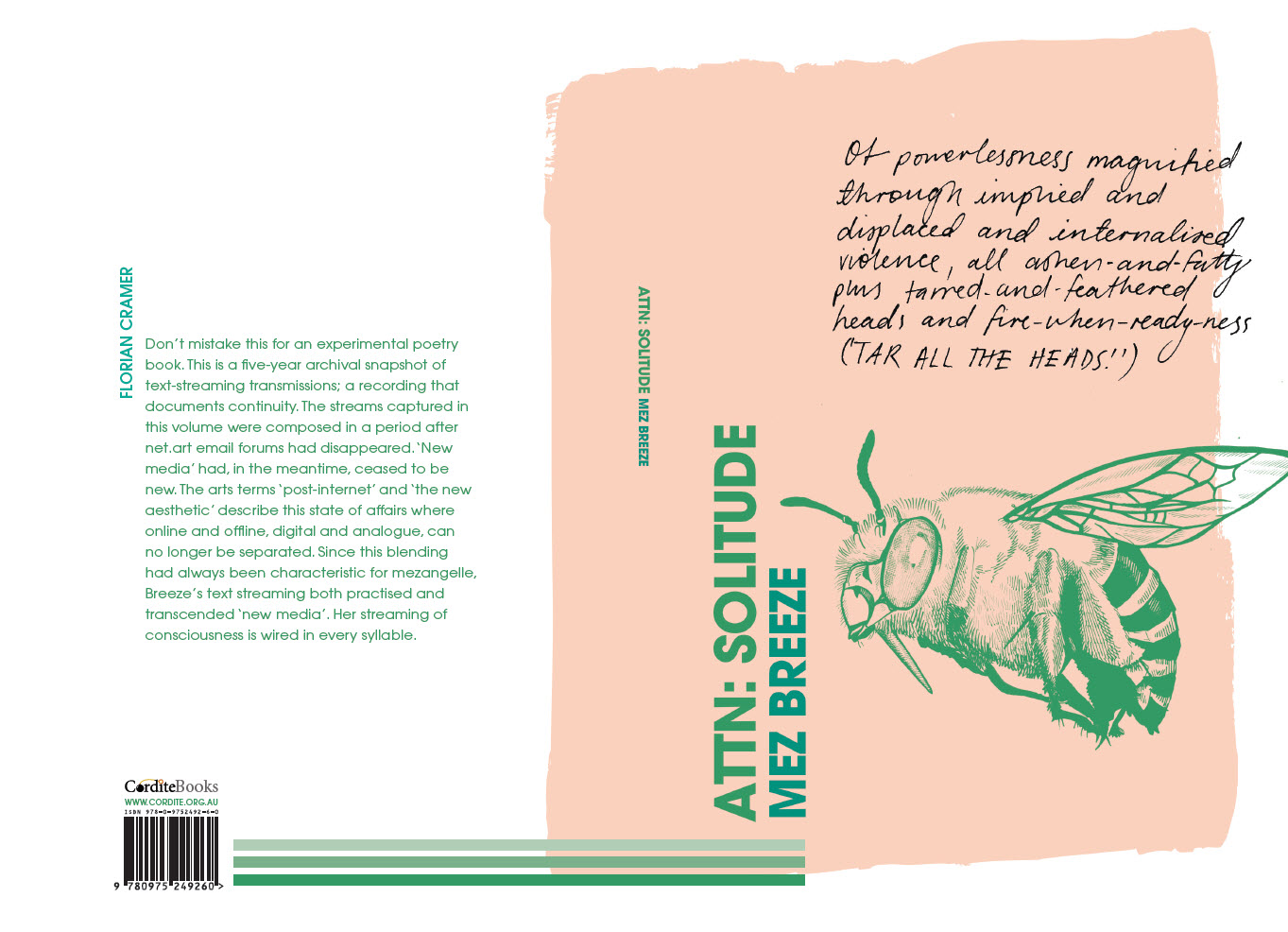 In the 1990s and early 2000s, Mez Breeze’s mezangelle language needed explication. People who were unfamiliar with internet and new media culture did not get the references. Those who were already immersed in this culture often considered it a separate realm, a cyberspace, and thus had difficulties with the blending of the digital and the physical, technology and embodiment, code and subjectivity in Mez’s writings.
In the 1990s and early 2000s, Mez Breeze’s mezangelle language needed explication. People who were unfamiliar with internet and new media culture did not get the references. Those who were already immersed in this culture often considered it a separate realm, a cyberspace, and thus had difficulties with the blending of the digital and the physical, technology and embodiment, code and subjectivity in Mez’s writings.
Introduction to Derek Motion’s The Only White Landscape
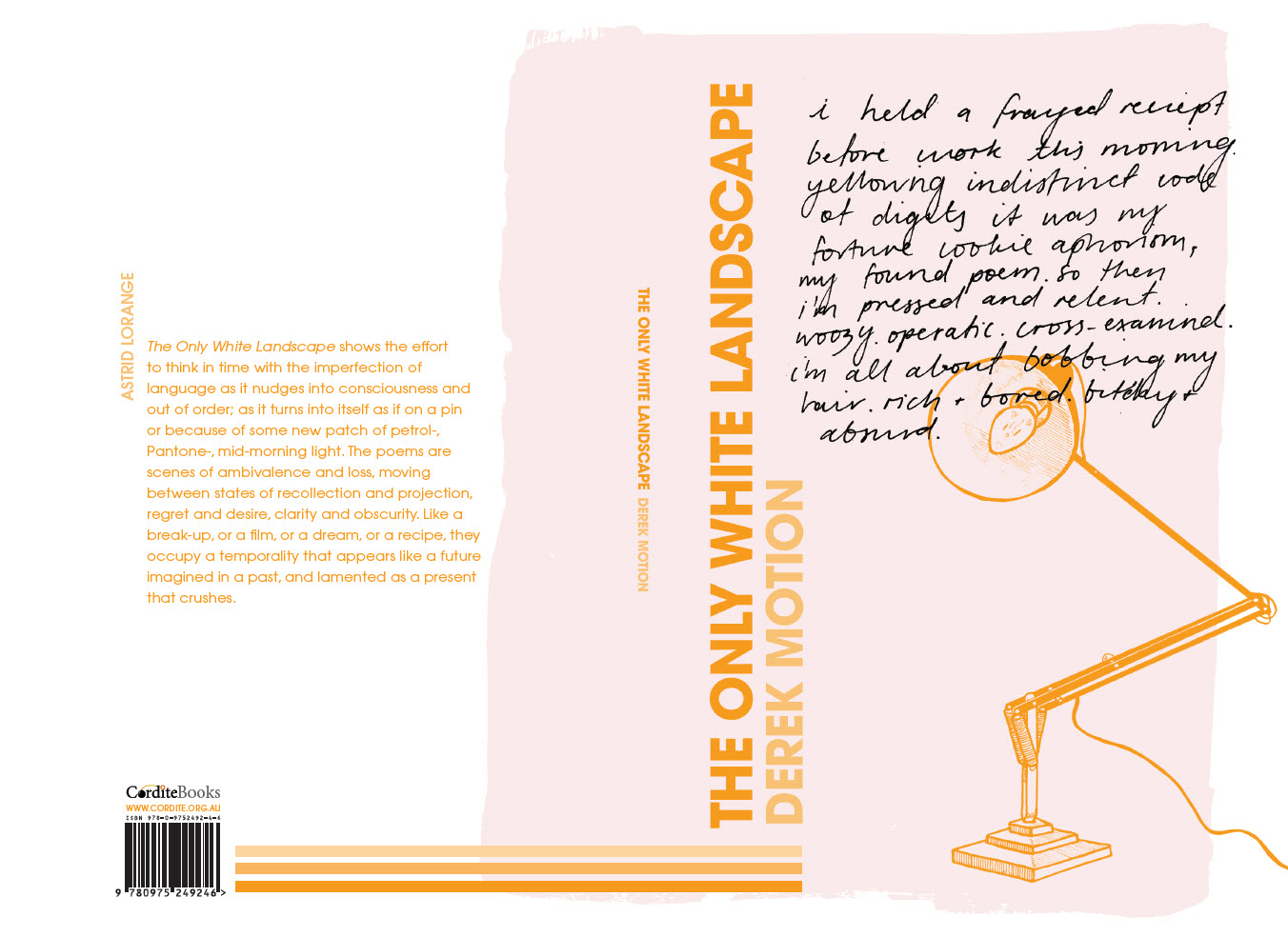 The Only White Landscape is melancholic, in this Wilsonian sense. The poems are scenes of ambivalence and loss, moving between states of recollection and projection, regret and desire, clarity and obscurity. There are preoccupations that link the poems across the collection: bodies (and the clothes they wear, the language of their presence and absence), light (and its close relationship to time), administration (and the twin labours of work and home).
The Only White Landscape is melancholic, in this Wilsonian sense. The poems are scenes of ambivalence and loss, moving between states of recollection and projection, regret and desire, clarity and obscurity. There are preoccupations that link the poems across the collection: bodies (and the clothes they wear, the language of their presence and absence), light (and its close relationship to time), administration (and the twin labours of work and home).
Introduction to Omar Sakr’s These Wild Houses
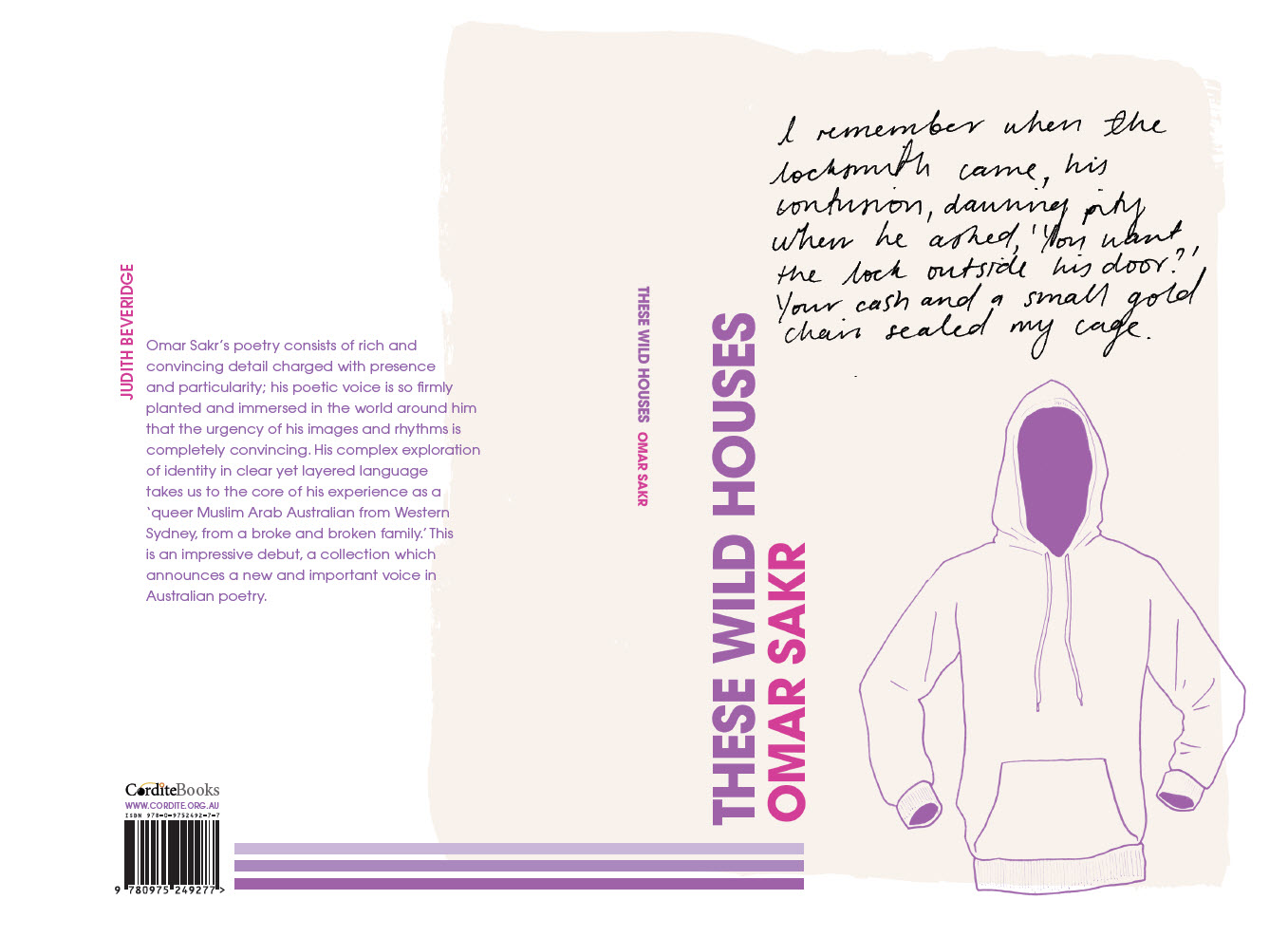 Omar Sakr’s These Wild Houses is a complex exploration of identity, an identity exposed in clear yet layered language, a language that takes us to the core of what he has experienced as a ‘queer Muslim Arab Australian from Western Sydney, from a broke and broken family.’
Omar Sakr’s These Wild Houses is a complex exploration of identity, an identity exposed in clear yet layered language, a language that takes us to the core of what he has experienced as a ‘queer Muslim Arab Australian from Western Sydney, from a broke and broken family.’
Introduction to Kris Hemensley’s Your Scratch Entourage
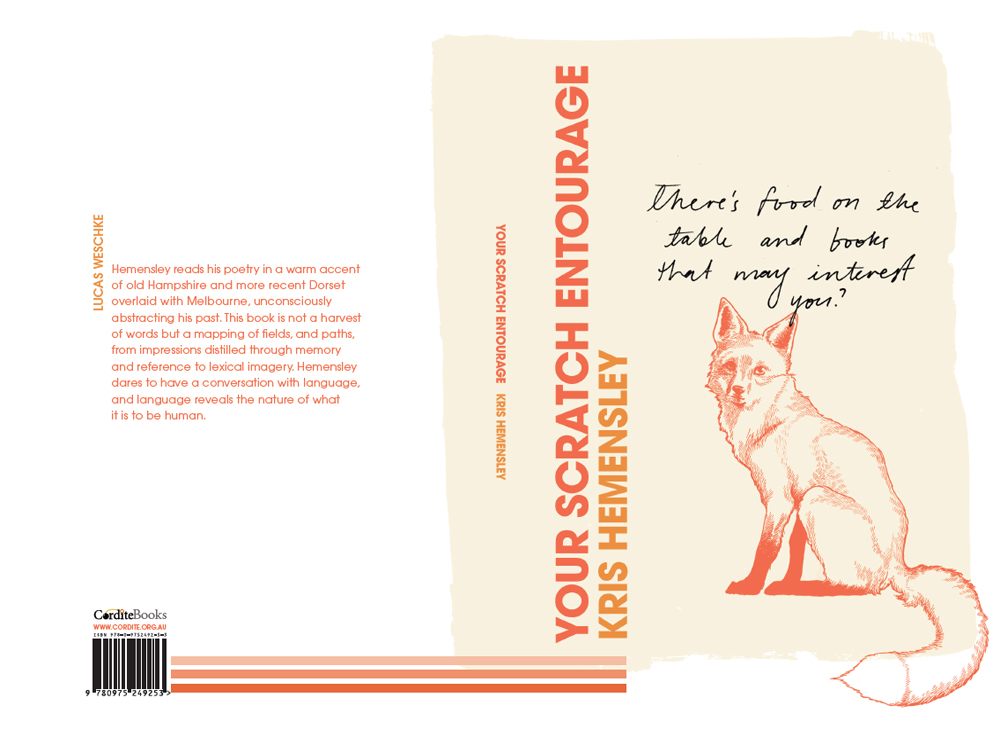 How can one write words about a poet? Last year, Kris Hemensley and I considered Émile Chartier (Alain)’s assertion that ‘men are afraid to complete their thoughts’, on our way to visit Greta Berlin, whom I had first met in Zennor as a small child and whose father, Sven Berlin, had enthralled a young Kris Hemensley in 1963 with the accoutrements of the artist and his first taste of red wine. And down by the harbour in Weymouth, we had already discovered a shared admiration for W S Graham. A framework was emerging.
How can one write words about a poet? Last year, Kris Hemensley and I considered Émile Chartier (Alain)’s assertion that ‘men are afraid to complete their thoughts’, on our way to visit Greta Berlin, whom I had first met in Zennor as a small child and whose father, Sven Berlin, had enthralled a young Kris Hemensley in 1963 with the accoutrements of the artist and his first taste of red wine. And down by the harbour in Weymouth, we had already discovered a shared admiration for W S Graham. A framework was emerging.
Introduction to Chris Mann’s Whistlin Is Did
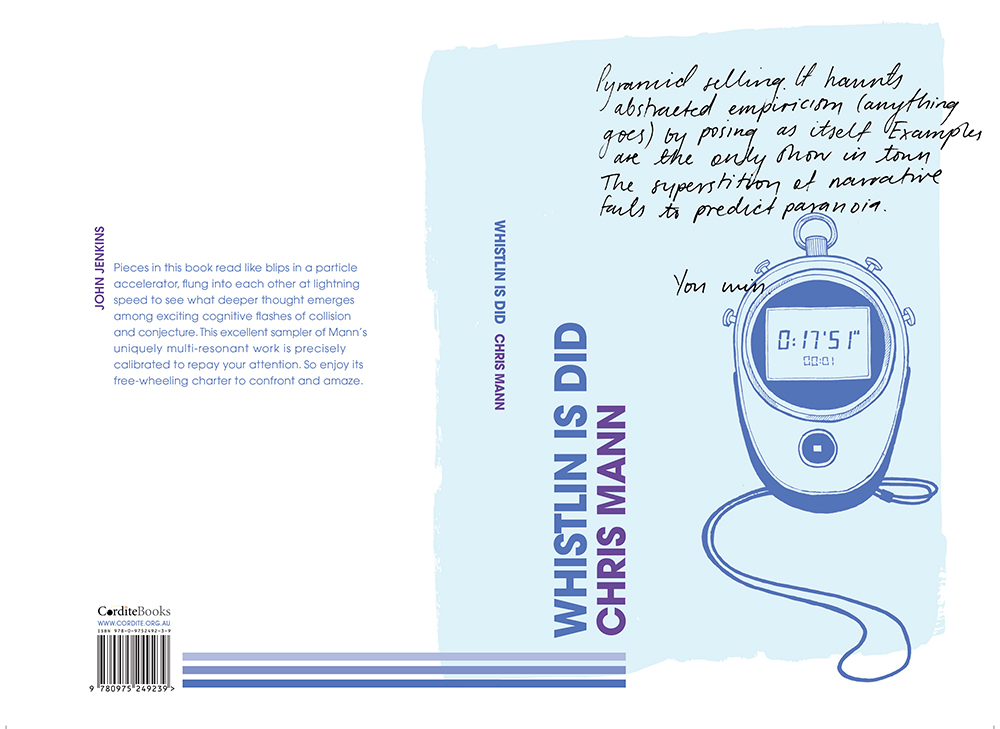 Chris Mann read at Melbourne’s La Mama in the early 1970s, where he first impressed me as a bold exponent of a sort of critical, larrikin and compositional linguistics, and seemed very much at home in the theatre’s performance space, with its nascent egalitarian ethos. Some listeners I noticed may have been equally perplexed as intrigued by his well-timed delivery, his knowingly artful shtick and highly patterned patter.
Chris Mann read at Melbourne’s La Mama in the early 1970s, where he first impressed me as a bold exponent of a sort of critical, larrikin and compositional linguistics, and seemed very much at home in the theatre’s performance space, with its nascent egalitarian ethos. Some listeners I noticed may have been equally perplexed as intrigued by his well-timed delivery, his knowingly artful shtick and highly patterned patter.
Introduction to Tony Birch’s Broken Teeth
Cover design by Zoë Sadokierski Don’t think you’ll get away with lightly reading these Tony Birch poems. They are not just words whistling on the wind. They come laden with other gifts. With a whole place: Melbourne. With a long …
Introduction to Jen Crawford’s Koel
Cover design by Zoë Sadokierski The koel is called after its call – its name is onomatopoeic, from the Greek ὀνοματοποιία: ‘ὄνομα’ for ‘name’ and ‘ποιέω’ for ‘I make’. The koel becomes itself as it sings out and is heard …
Introduction to Autumn Royal’s She Woke & Rose
Cover design by Zoë Sadokierski She Woke & Rose introduces us to a poet, Autumn Royal, who is unafraid to spark light in the darkest of places. The poems in this impressive debut collection illuminate the uneasy space of the …
Introduction to Claire Nashar’s Lake
Cover design by Zoë Sadokierski In Lake, Claire Nashar navigates the connections between people and between person and place in a striking elegy not only for her grandmother, leading geology academic Beryl Nashar, but also for Tuggerah Lake, an estuary …
Introduction to Javant Biarujia’s Spelter to Pewter
Cover design by Zoë Sadokierski In Javant Biarujia’s poetry, language matters – matters as in important, and matter as a unifying substance, a material to be transformed, and in so doing, becomes transforming. Particles of language are pounded out, splintered, …
Introduction to Rachael Briggs’s Common Sexual Fantasies, Ruined
Cover design by Zoë Sadokierski The polka originated in nineteenth-century Bohemia. A dance for two, it is reputedly simple to learn. Three steps and a hop, in fast duple time, with various steps – Turning Basic, Pursuit and Waltz Galop …
Introduction to Natalie Harkin’s Dirty Words
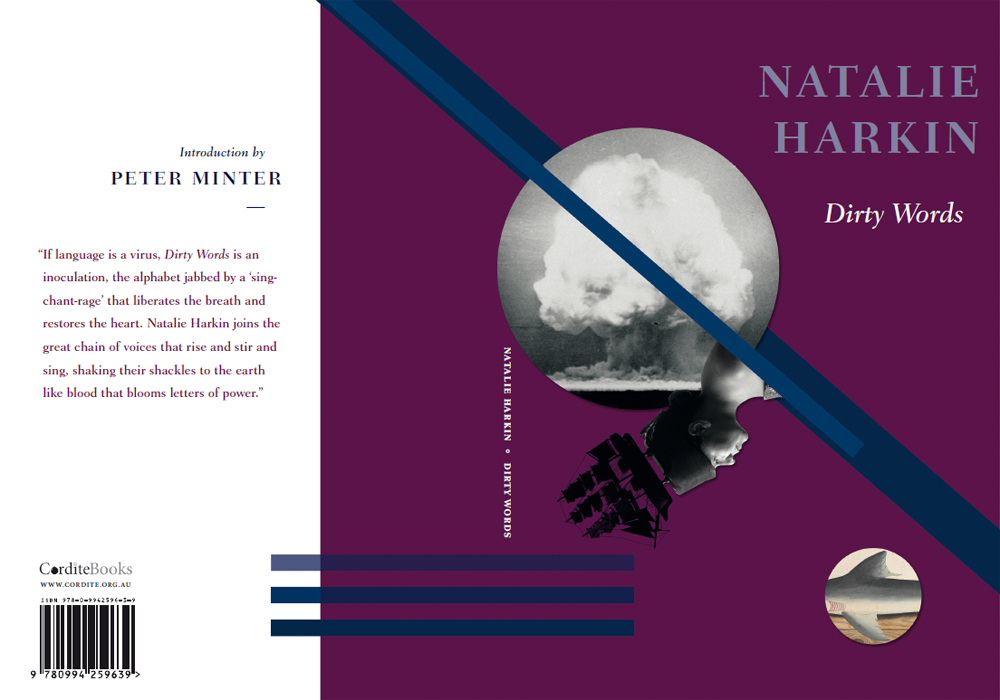
Cover design by Zoë Sadokierski
Introduction to Ross Gibson’s Stone Grown Cold
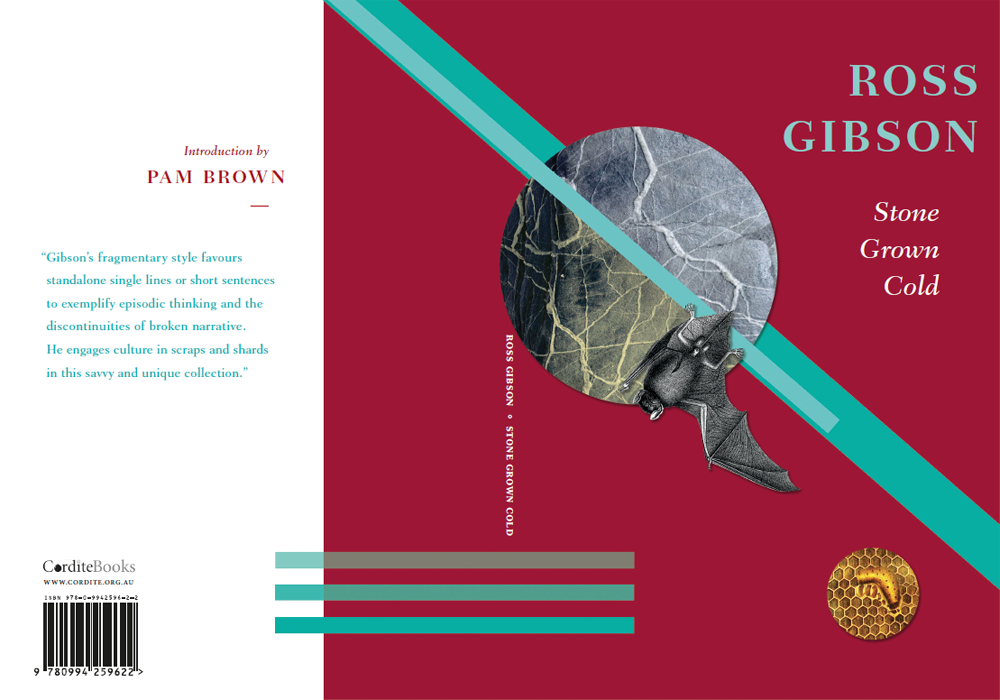
Cover design by Zoë Sadokierski
The works that Ross Gibson has written and edited over the past thirty years could be classed as political aesthetics. In books like Seven Versions of an Australian Badland, chronicling the wretched historical miscreants of Queensland’s Brigalow country, or 26 Views of the Starburst World: William Dawes at Sydney Cove 1788–1791, speculatively tracing English astronomer William Dawes’s scientific work and his relationship with the Indigenous Eora people of Sydney Harbour in a few late years of the eighteenth century, Ross Gibson’s method is procedural. Seven Versions and 26 Views form a compositional design that he has described as ‘fractal’, allowing unfixed multiple views and patterns. The author’s practice of creative fragmentation, applied to the poems and short prose pieces in this new collection, eschews linearity and dull chronology.











